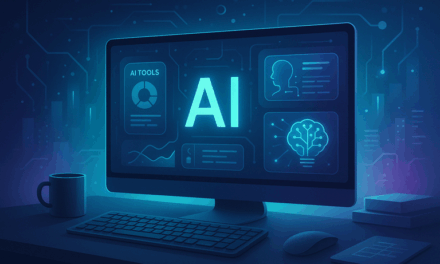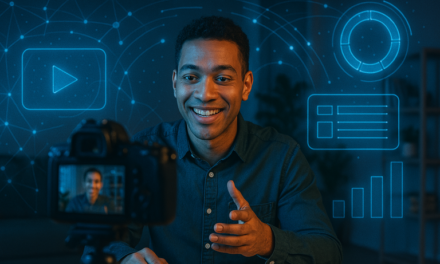Introduction
Imagine this: It’s 8:00 a.m. on a Monday morning. You’re clutching your coffee cup, scanning through your packed email, and wondering how you’re going to get everything done this week. Marketing campaigns, client reports, and that strategic planning meeting have been looming on your calendar like a dark cloud. You chuckle at the thought of cloning yourself to handle it all. But what if I told you that an army of digital employees could take on these tasks?
Welcome to the world of AI in marketing, where machines don’t just assist—they become your tireless teammates. We’ve all heard the buzzwords and the promises of efficiency and productivity. Sure, automating some tasks might sound like magic, but we’re marketers; skepticism runs in our veins. Yet, as the demands of the industry grow, the prospect of having digital employees isn’t just a dream—it’s becoming a necessity.
Remember the last time you spent hours crafting personalized email campaigns or sifting through Excel sheets like a modern-day explorer? Now, picture those tasks streamlined, refined, and executed with near perfection by an automated system, freeing you up to do what you do best—innovate and connect.
Why AI Matters for Marketers
In an age where data is the new oil, AI acts as the refinery, turning raw information into tangible strategies. For marketers, the rapid evolution of AI offers a lifeline in managing vast datasets, predicting consumer behavior, and, ultimately, crafting winning campaigns. Challenges abound, from keeping pace with consumer expectations to delivering personalized experiences at scale—the demands are ever-increasing.
Consider the challenge of customer engagement. Consumers today expect instant, personalized interactions. Enter AI-driven chatbots, rescuing marketers from the burdensome task of real-time communication. By leveraging AI, marketers can automate client interactions, maintaining the charm of a personal touch without the overhead.
Furthermore, AI brings predictive analytics to the table, allowing marketers to anticipate trends before they fully emerge. Imagine crafting strategies with the foresight of an oracle—AI isn’t just a tool; it’s the crystal ball we’ve all been waiting for.
Top AI Tools to Know
ManyChat
ManyChat is not just a chatbot platform; it’s a conversational marketing powerhouse. Designed for platforms like Facebook Messenger, it automates customer interactions, seamlessly guiding users from inquiry to conversion.
Benefits: For marketers, ManyChat saves countless hours while increasing engagement rates. Imagine setting up a messenger campaign that runs on autopilot, yet maintains the warm, welcoming feel of a personal conversation.
Example: Picture launching a new product. ManyChat could handle inquiries, provide product details, or even process orders—all while you sip a latte and watch your website’s engagement stats soar.
HubSpot AI
HubSpot AI brings automation to myriad facets of marketing, from lead scoring to content creation. As part of the HubSpot suite, this AI tool integrates smoothly, enhancing the marketer’s ability to nurture leads and maximize ROI.
Benefits: With HubSpot AI, marketers gain insights into customer journeys, optimize content strategies, and automate mundane tasks. It’s like having an assistant who never requests a lunch break.
Example: Imagine implementing a personalized email marketing campaign that adapts content based on user behavior patterns, all orchestrated by HubSpot AI behind the scenes. Now that’s marketing magic.
Future Outlook
In the next 3–5 years, AI is set to redefine the marketing landscape. Predictive AI tools will become even more sophisticated, enabling hyper-personalization like never before. The marriage of AI and creativity will foster unprecedented marketing strategies, where data-driven insights elevate the artistry of brand storytelling.
However, alongside these opportunities lie risks. Over-reliance on AI could lead to generic interactions, potentially alienating consumers. Therein lies the challenge: leveraging AI to enhance human connection rather than replace it.
For marketers, upskilling is imperative. As AI evolves, so must the marketer’s role. Skills in data analytics, understanding machine learning basics, and strategic content planning will become invaluable. Embracing continuous learning will be key to staying ahead in this AI-driven era.
Conclusion
As we close the chapter on skepticism and embrace the realm of possibilities AI offers, remember: The future isn’t about replacing humans; it’s about augmenting our capabilities. Picture AI as a digital colleague, enhancing your skills, relieving tedium, and allowing you to focus on creativity and innovation.
So why not take the plunge? Choose a tool—ManyChat or HubSpot AI—and begin your journey into the AI-powered future of marketing. The opportunities are endless, and the future of your agency awaits.




